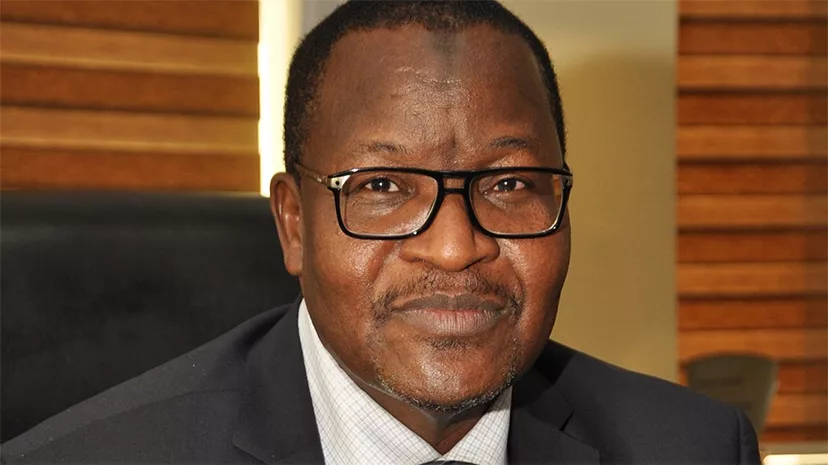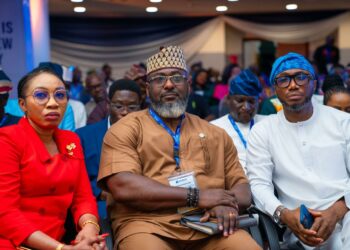Artificial Intelligence (AI), a field that combines computer science and robust datasets to enable problem-solving, can transform the productivity and Gross Domestic Product (GDP) potential of a country, studies have shown.
One of such studies is the PwC report that foresees global GDP increasing by 14 per cent in 2030 as a result of the accelerating development and take-up of AI – the equivalent of an additional $15.7 trillion.
“AI could contribute up to $15.7 trillion to the global economy in 2030, more than the current output of China and India combined. Of this, $6.6 trillion is likely to come from increased productivity, and $9.1 trillion is likely to come from consumption-side effects,” PwC report explained.
Africa can benefit from the $15.7 trillion AI global boom if policymakers in the continent can address several critical factors, such as digital infrastructure, digital skills development, data security, and collaboration, among others, the executive vice chairman/CEO of the Nigerian Communications Commission (NCC), Prof. Umar Garba Danbatta, posited while giving his keynote address at the 11th edition of Digital Africa Conference & Exhibition in Abuja.
The EVC/CEO, who was represented by the head, Consumer Information and Education, NCC, Dr. Emilia Nwokolo, at the event, averred that AI has emerged as one of the most transformative technologies in recent times, while disclosing that its potential to revolutionise industries, enhance productivity, and improve the quality of life for citizens cannot be overstated.
“As the EVC of NCC, I believe that AI will play a pivotal role in shaping Africa’s digital future. There are several examples of AI-powered software in use in our daily lives, including voice assistants, face recognition for unlocking mobile phones, fingerprint biometrics, and machine learning-based financial fraud detection.
“In recent years, we have witnessed remarkable advancements in AI across various sectors, including healthcare, agriculture, finance, transportation, education, and even governance. AI-powered solutions have the potential to address some of Africa’s most pressing challenges, such as limited access to healthcare, food security, financial inclusion, and infrastructure development,” he stated.
With these possibilities, Danbatta urged the continent to commit to ensuring reliable power supply and fostering a conducive regulatory environment for AI adoption, while stating that without robust infrastructure, the potential of AI will remain untapped, and the digital divide will further widen.
He also harped on the need to prioritise digital skills development, even as he alluded that AI technologies require a skilled workforce capable of developing, deploying, and maintaining these systems.
“We need to invest in education and training programs that equip our youth with the necessary skills to participate in the AI-driven economy. By nurturing a generation of AI experts, we can elevate Africa’s position in the global AI landscape and create job opportunities for our youth,” Danbatta recommended.
As crucial as AI is to economic development, it also comes with ethical and security issues, Danbatta revealed, while urging stakeholders in the continent to ensure transparency, accountability, and fairness in the deployment of AI systems.
“We must guard against biases, protect privacy and data security, and uphold human rights. AI should be a force for good, promoting inclusivity and leaving no one behind,” he advised.
He hinged the seamless deployment of AI in Africa on collaboration and partnerships, adding that, “We must foster collaboration among governments, regulatory bodies, academia, the private sector, and civil society. By working together, we can share knowledge, pool resources together, and leverage expertise to drive innovation and create an enabling environment for AI adoption.
“AI holds the power to transform our societies, drive economic growth, and improve the well-being of our people. Let us seize this opportunity and work together to build an inclusive, sustainable, and AI-powered Africa,” Danbatta advocated.
NCC’s Strategies On AI Adoption In Nigeria
For Nigeria to fully benefit from AI in ways that accelerate growth in the national economy, Danbatta disclosed that the NCC has prioritized the need to upgrade and expand broadband infrastructure as well as the deployment of new technology, such as the Fifth Generation of Mobile Communication (5G), to facilitate the actualisation of the set targets in the federal government’s digital economy policy.
It is noteworthy to state that Nigeria’s telecom industry has garnered a whopping $77 billion in investment since the introduction of GSM and the growth of broadband infrastructure. Even more remarkable is the fact that $39 billion of this amount entered the industry during Danbatta’s eight years serving as the regulator. Furthermore, the industry currently makes up a sizeable 16 per cent of the country’s GDP, a notable increase from the eight percent it made up in 2015 when Danbatta took on the position of EVC.
On broadband penetration, the NCC revealed that the Nigerian broadband penetration stood at 47.01 per cent as of July 2023, even as Danbatta averred that broadband penetration, which stood at six percent in 2015, has increased significantly to 47.01 percent as of July 2023, enhancing over 89.73 million subscriptions on 3G, 4G, and 5G networks in the country; additionally, general internet subscriptions have reached 159.5 million up from less than 100 million in 2015.
“The national target to achieve 70 percent broadband penetration by 2025 is receiving renewed attention from NCC, which promises 50 percent before the end of 2023. The Commission’s efforts to improve broadband penetration are yielding fruitful results with the current estimates as at July 2023 standing at 47.01 percent,” Danbatta posited.
On 5G adoption, Nigeria is being positioned by NCC as one of the early adopters of 5G technology in the global digital economy. This decision paid off handsomely, with carriers including MTN, MAFAB, and Airtel paying the federal government $820.8 million in 5G spectrum license fees.
Another plus for Danbatta is the recent introduction of Starlinks internet services, a satellite-based wireless broadband option with the potential for statewide coverage. This service is currently offered across the nation thanks to the NCC’s granting of a license to Elon Musk-owned SpaceX.
So far, 5G services subscription in Nigeria hit half a million recently. “From the sales of 5G C-Band Spectrum, the NCC has generated over $847.8 million for the federal government,” Danbatta revealed.
The NCC is fully committed to supporting the development and deployment of AI technologies in Nigeria and across the continent, the EVC assured, while revealing that, “We are working to create an enabling regulatory framework that promotes innovation while safeguarding the interests of consumers and citizens. We are also collaborating with stakeholders to establish AI research and development centers, incubation hubs, and startup ecosystems to nurture homegrown AI talent.”
In the same vein, the minister of Communications, Innovation, and Digital Economy, Bosun Tijani, has assured Nigerians that the federal government is putting all necessary structures in place to put the country on the global map as a premier destination for AI model training.
The International Finance Corporation projects that the strategic adoption of AI could add up to $234 billion to Africa’s GDP by 2030.
Tijani posited that AI will usher in a new era of technological and economic transformation over the next two decades, while disclosing that, “As an emerging economy, it is imperative that Nigeria formulate a far-reaching national strategy to harness the potential of AI in an inclusive and responsible manner.”
To that effect, the minister said the federal government is taking a unique approach to provide the expertise and perspectives needed to craft a forward-looking strategy. “The implementation of the strategy amongst other things is expected to elevate Nigeria as a top 10 location for AI model training and talents globally.
“In addition, we will position Nigeria as a global leader in accelerating inclusivity in AI dataset.
“Our target is to achieve top 50 global ranking (currently 96) in AI readiness and adoption across metrics (Computing Power, Skills, Data Availability, Ethics and Governance) by 2030 and to create over 50,000 jobs in Nigeria’s AI industry by 2030,” he revealed.
Tijani also disclosed that the federal government is seeking Nigerian-born experts who are living in the country and diaspora to help create its National AI Strategy.
He averred that the government is building on existing work done by the National Information Technology Development Agency (NITDA) to develop a National AI Strategy, hence, it is expanding its co-creation approach to engage and include top AI researchers of Nigerian descent globally.
“We are curating a list of the top researchers of Nigerian descent from all over the world to join us in co-creating a National AI Strategy. The strategy will help shape our approach to building innovative tech solutions to our most pressing national problems,” he said.





